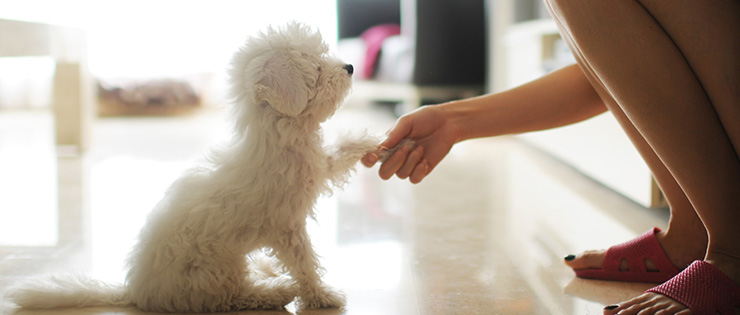
If you've recently adopted a puppy, congratulations! Prepare to embark on one of the most rewarding and heart-warming journeys of your life. Be ready to have at least one valuable item destroyed, part of your furniture chewed and an area of your backyard dug up. But equally, welcome the joy of a tiny and vulnerable life, at the mercy of your kindness.
One of my favourite lines of work is running puppy school
Puppies are so open to learning new skills, exploring new environments and discovering who their allies are. Because of their innate openness, puppies can get themselves into mischief, but they can also learn many unhelpful habits during the first year of their life. Because of this, a puppy must have an owner who they trust and respect.
Trust and respect are values that must be earnt in a relationship
To earn these, owners should spend time getting to know their puppy. Here are some ways you can learn about your puppy’s personality:
Find out what your puppy likes to play with by offering them a range of toys
These include tug ropes, squeaky toys, plush toys, and treat dispensers. Remember you don't need to spend a lot of money on these. Tug toys can be plaited material such as a cut-up old tee-shirt. Treat dispensers can be a cardboard box with chicken inside. Get to know what your puppy loves to play with. This will help you learn what motivates them to learn.
Discover your puppy’s innate confidence level by exposing them gradually to a range of different stimuli
These include different noises such as trams, trains and thunderstorms. If your puppy has not had their final vaccination, then these will be played over a speaker at your home. There are many websites that play these noises. Make sure that whenever these noises occur, your puppy is offered a very high value treat at the same time. The better the treat, the more likely your puppy will learn to like the noise they associate the treat with.
Set your puppy up to succeed
What I mean by this is, put your puppy in an environment where they don’t feel anxious, fearful or uncertain. At the very least, expose your puppy gradually to uncertain environments, offering them very high-value treats during exposure. Keep the exposure short and sweet and heavily praise your puppy afterwards. Exposure to anything new should only be about 5-10 minutes in duration and then some playtime afterwards. If you find your puppy is anxious, then remove them calmly from the situation and refocus on something positive and fun.
Look for the good in your puppy
This means that every time your puppy shows positive behaviour, reward them. Your puppy might just be calmly resting on their bed, listening to you, or controlling their urge to jump up on you. Every time they volunteer to make a good choice, they need to be rewarded for it. A reward is usually very high-value food, but for some puppies, a quick game of tug or chasing the ball is more exciting. This is why it is so important to get to know your puppy.
The better you know your puppy, the more successful you'll be at training them. Additionally, the better you know your puppy, the better your relationship will be. There's nothing quite like the trust and respect of a young dog. It is a relationship too many, that is incomparable.